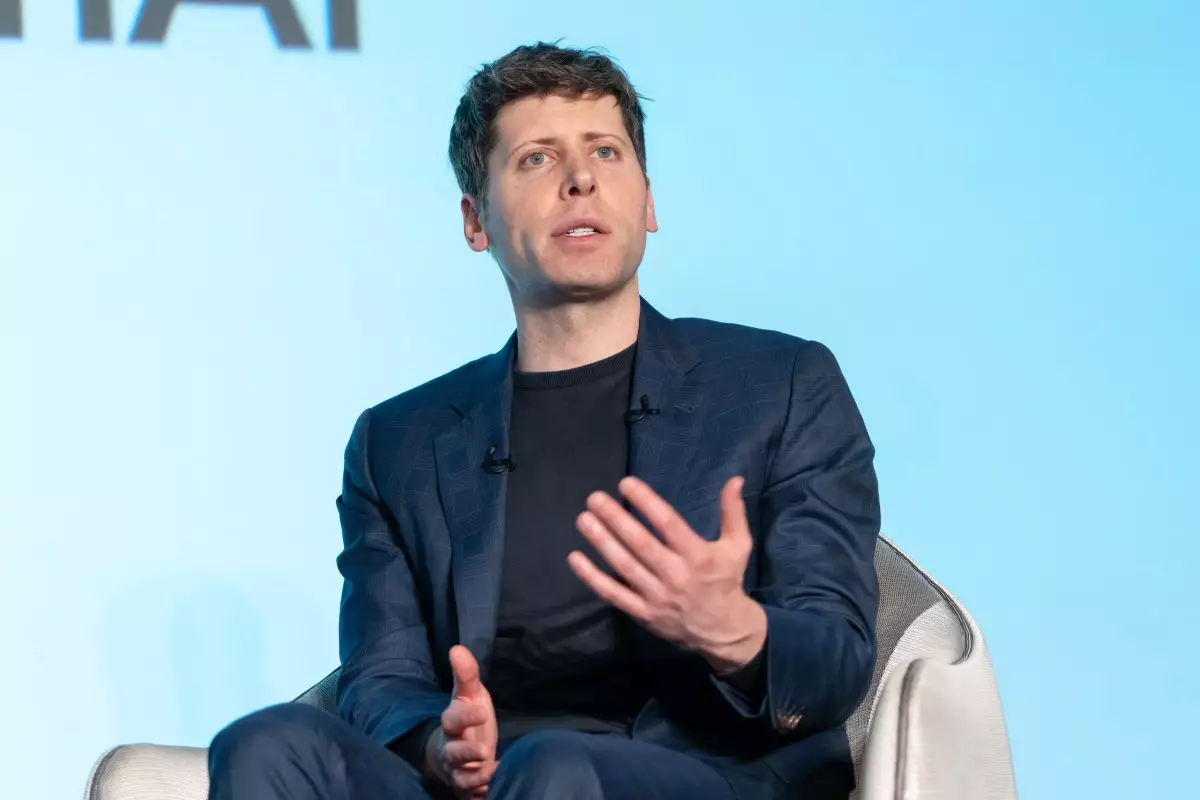In the ever-evolving landscape of technology, where artificial intelligence blurs the lines between human and machine, Tools for Humanity emerges as a pioneering force. Co-founded by visionary Sam Altman, the CEO of OpenAI, the startup recently unveiled the Orb Mini—a sleek, portable device engineered to differentiate humans from AI elements. This launch was highlighted during an exciting “At Last” event in San Francisco, marking a pivotal moment in humanity’s ongoing struggle for verification in the digital realm.
The Orb Mini: More than Just a Device
The Orb Mini, with its striking resemblance to conventional smartphones, hosts impressive dual sensors specifically designed to scan the unique patterns of human eyeballs. Rich Heley, with a background as an Apple director, played a crucial role in the device’s introduction, emphasizing that its primary function is not as a communication tool but rather as a verification solution. This change in paradigm indicates a significant shift towards practical applications where ensuring genuine human interaction in an AI-pervasive world becomes necessary. The device aims to unlock a new layer of digital identity verification for millions.
Although this device appears to be a substantial stride forward, it raises questions about its ultimate capabilities and potential. Plans to evolve the Orb Mini into a mobile point-of-sale device signal a desire for commercial integration, but specifics remain elusive. This ambiguity adds an element of intrigue to the product’s future, leaving enthusiasts and skeptics alike curious about its potential functionalities beyond mere verification.
World Project: Scaling Verification
Tools for Humanity is not just about devices; it encompasses a broader vision known as the World project (previously Worldcoin). This ambitious initiative explores the implications of a future wherein distinguishing between human beings and AI agents among online personas becomes increasingly complex. The notion of offering “proof of human” serves as a cornerstone of this venture. Already, reports suggest that more than 26 million individuals have signed up for the project, with an impressive 12 million confirmed as verified users. This widespread adoption, particularly in regions such as Latin America and Asia, marks an essential milestone in the ongoing march toward a more transparent digital ecosystem.
Preventing deception and fostering trust in online interactions stands at the forefront of the company’s motives. As digital marketplaces and social platforms grow in number and complexity, ensuring that human users can be recognized and valued distinctly is fundamental. While this initiative promotes a healthy skepticism about digital identities, it also highlights the intricate dance between facilitating user accessibility and fortifying security measures.
The Road Ahead: Retail Expansion
As Tools for Humanity endeavors to plant its roots in the United States, the upcoming launch of the World Network signifies a strategic move into the retail sector. With store openings planned in metropolitan hubs such as Austin, Miami, and San Francisco, customers will soon have the opportunity to undergo personalized eyeball scans using the Orb devices. This hands-on approach could facilitate broader acceptance and familiarity with the verification process, strengthening the project’s foothold in the U.S. market.
The retail expansion strategy not only aims to encourage individuals to engage with the technology but also serves to normalize the verification landscape. Such physical touchpoints could save the project from the challenges faced by other digital-only initiatives that struggle to establish credibility or trustworthiness amongst the populace.
A Future Intertwined with AI
With developments emerging at a steady pace, the intersection of Tools for Humanity’s projects with those of OpenAI remains an intriguing question. Speculation about potential partnerships swirls in the air, especially considering OpenAI’s own ventures into cutting-edge technologies. Will the Orb Mini eventually incorporate AI functions? The compatibility between these two powerful narratives raises essential questions about the future of verification and the role AI will play in enhancing or complicating these processes.
As we navigate through this new technological era, initiatives like the Orb Mini represent both a challenge and an opportunity. They offer a peek into a future where the balance of power in digital identities will require innovative solutions to sift through complexities arising from AI developments. The Artistry of identity verification is being redrawn, and it seems Tools for Humanity is leading the charge into this brave new world.

